Give a voice to the youth: a conversation with the graduates of Central Asian Leadership Programme
Almaty hosts the Eighth Central Asian Leadership Programme on Environment for Sustainable Development. For the first time, six graduates took part, acting as mentors for new participants during the first day, and also read the words of farewell. After this touching session, we gathered in the garden to talk in a close circle.
Idrees Malyar, Afghanistan; Danara Saranova, Kazakhstan; Aziza Murzashova, the Kyrgyz Republic; Madina Rakhmatova, Tajikistan; Nataliya Chemayeva, Turkmenistan and Nodira Dzhanibekova, Uzbekistan.
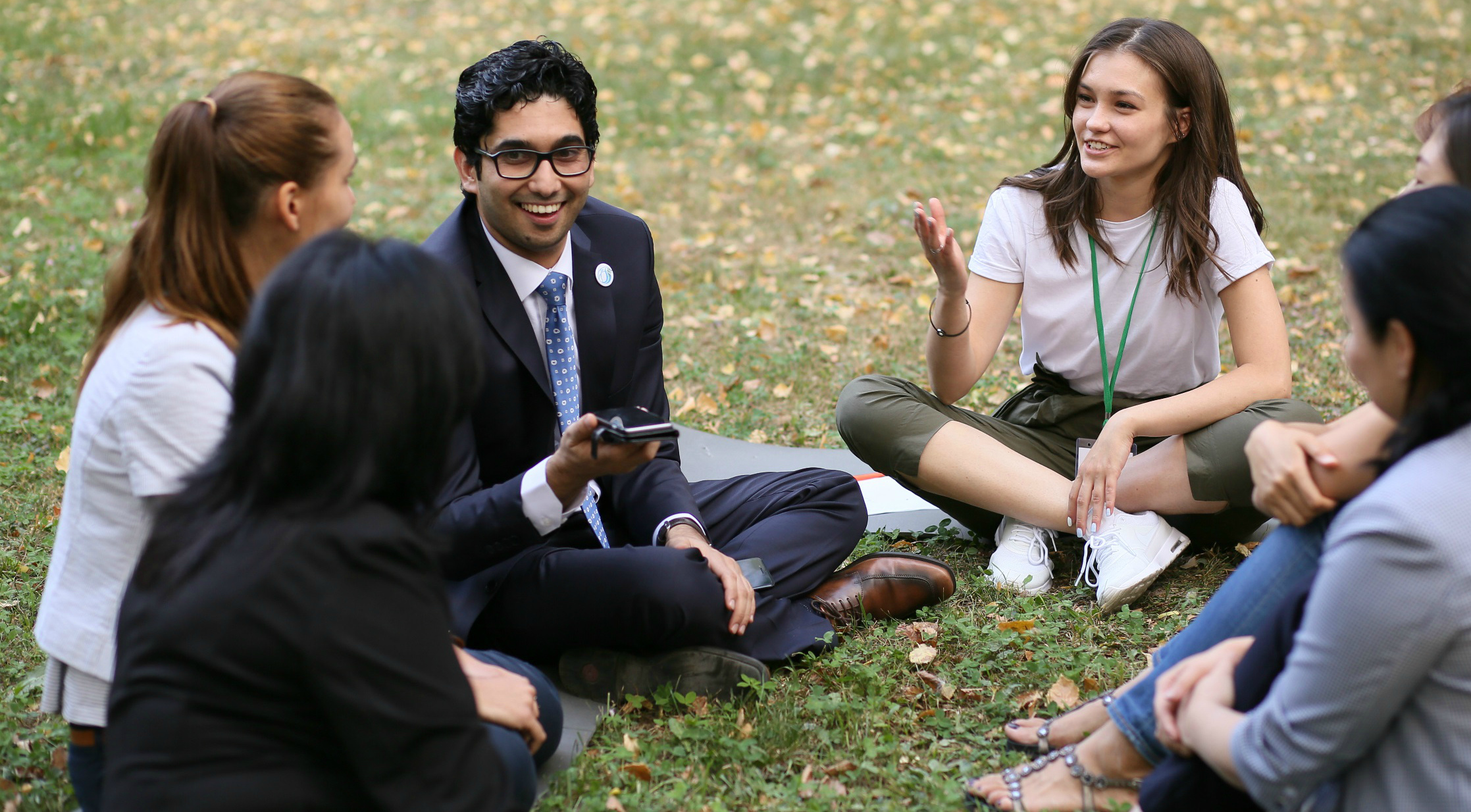
CAREC: Each of you graduated CALP with a difference of a year or two. Tell us, please, do you see changes in the programme today?
Madina: Well, even the opening was different. We were invited as graduates for the first time, and we shared our experience, told what we achieved.
Aziza: Yes! This is one of the most useful conferences: thanks to the organizers, people here begin to be friends and continue to communicate - it's cool. I also like that the programme has practical tasks, not just theory.
CAREC: You have already seen the participants from your country today. What do they tell you? What are they worried about?
Idrees: As for Afghanistan, we are really new to the Central Asian environment. While we share one culture in this region, it still can be different. I advise the brethren to be calm and attentive.
The second is the content: SDG, climate change, risk management, water resources management, international law. For example, we had a speaker from the United States on mediation. You see, there are many topics that might be interesting.
Nataliya: Did they ask you whether this country is dangerous?
Idrees: Of course, didn’t. They will find friends here.
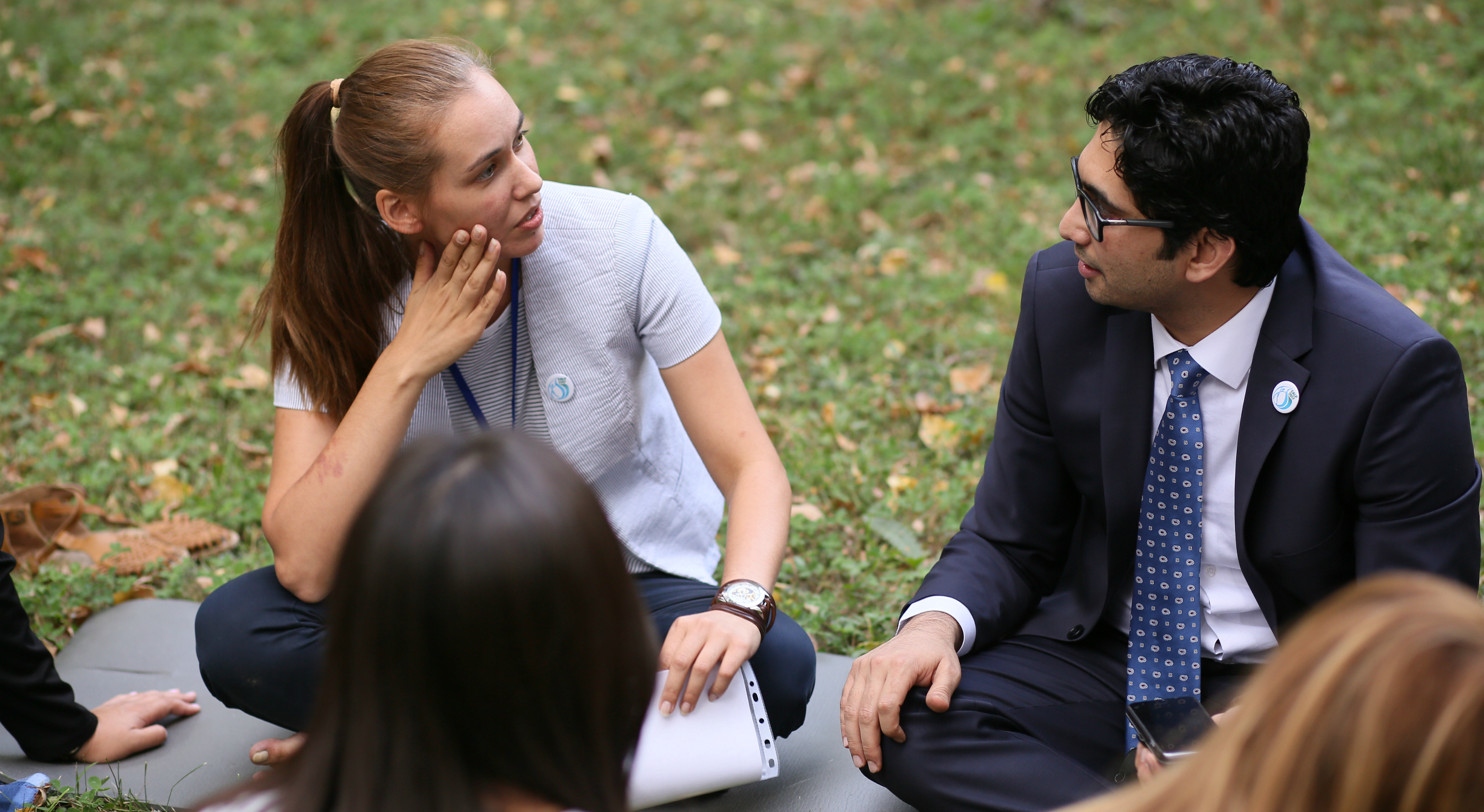
CAREC: Oh, here's the question that seems important to us. We ask it everyone. So many efforts are invested in this programme, so many partners have joined. But we still have those who do not understand the usefulness of such trainings. In general, dialogue platforms go through tons of criticism among the media. What do you have to say to these people as graduates of CALP?
Danara: Probably, they just need to participate and feel it by themselves. In any case, any project has pros and cons, but to say unequivocally, one must look at the results. We see that today more than 200 graduates of the programme really work.
Nodira: I think we gathered for this: "Look, there are alumni, and they work, and they are not from one country." That's even six of us to consider – we work in different spheres. CALP is a unique and universal.
Nataliya: Skeptics have appeared because no one has seen the continuation: every year people just returned to their countries. Therefore, when there are proposals for the network of graduates, which would support CALP relations at different levels, we only support. Now everything depends on us, as far as we can establish it.
Danara: If someone from our chain is eliminated, the network should not collapse. For example, today I talked with a delegation from Kazakhstan; they like the idea, but they, like us at the very beginning, do not understand how and why it can work. But we will solve it.
Aziza: Yes, and generally there are skeptics of such activities throughout the world, because you cannot see or name quantitate indicators. But, in my opinion, if at least one or two or three people who will make important environmental decisions in the future will be affected by this conference, this is already an answer to skeptics.
Even today, when each of us told a success story, it was clear how this program affected our life and the further choices. It's hard to measure, but if you dig deeper, then ask graduates, then you see an invaluable effect.
Idrees: Negative people are always negative. Do not worry about them.
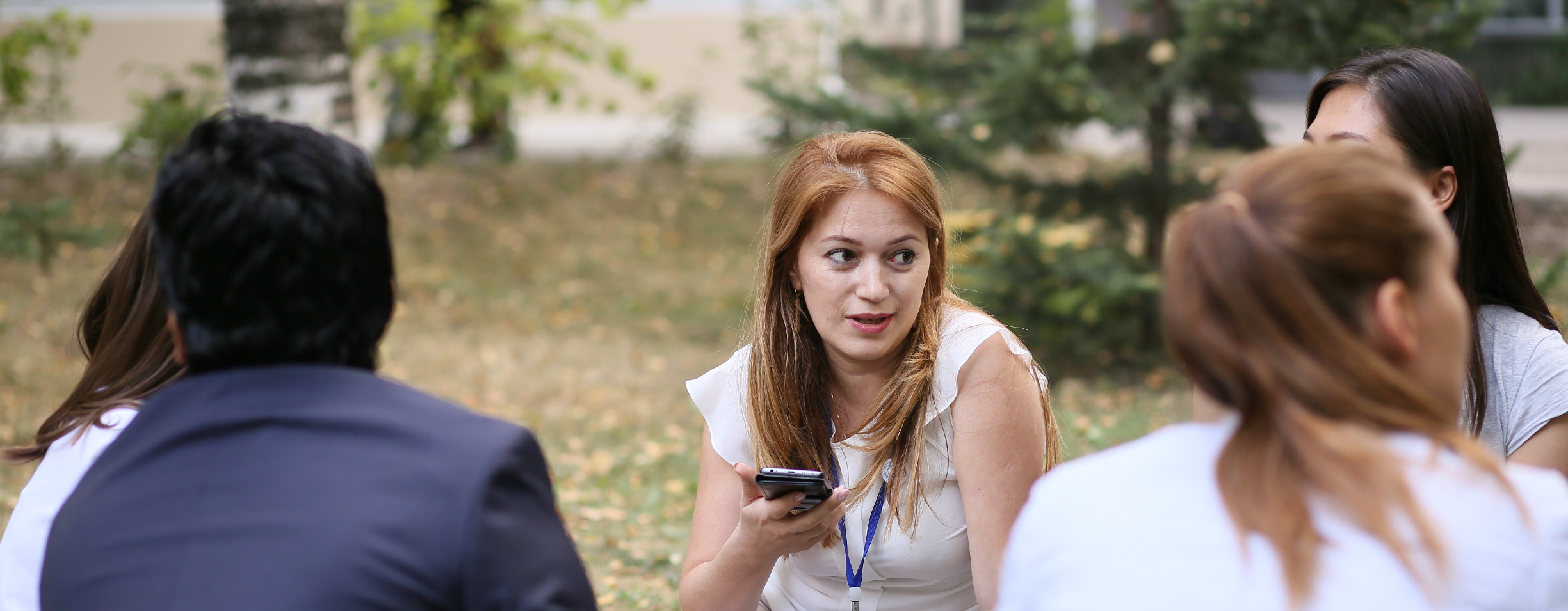
CAREC: Let's talk about being a young professional in the region. I ask as a young woman also. Do you feel any difficulties?
(everyone looks at Idrees and starts to laugh)
Idrees: All right, I'll say. I think that we must change the mentality, and this cannot come in one day. You must wait and speak for it. In the end, there must be rules and regulations that do not allow to treat women badly. If you look at other countries, they have a zero level of tolerance for this kind of persecution of employees. But this should not come at our level, more on the political level, from the government.
CAREC: Do you think that the change in this case does not come from you?
Idrees: Since I worked and work with women, I studied with them, most of my subordinates are women, in my field I do this, but, in the long run, more time will be needed for big changes.
CAREC: And if you think separately from gender. As a young specialist, do you feel any obstacles in your work?
Idrees: In my opinion, I never felt less important than my older colleagues. I always say what I want to say (Idrees works as an expert on transboundary water management at the Ministry of Foreign Affairs of Afghanistan).
For this I do not see any obstacles, because if you study well, you work hard, you will be respected, and everything will be fine. Especially in Afghanistan: it really supports young employees. If you heard, our president said that the government is now younger than ever. So, we have no problems with this side.
Danara: Honestly, I can say that it happened. When I first arrived, Shymkent began to press me: that's impossible, this is impossible. But time pass and real actions lead to consciousness changes. If there is a desire to do something, there are no obstacles - this is my opinion.
Nodira: I believe that the difficulties are always there. But the leader has this quality: if you want something, then whatever obstacles you encounter, you will overcome them.
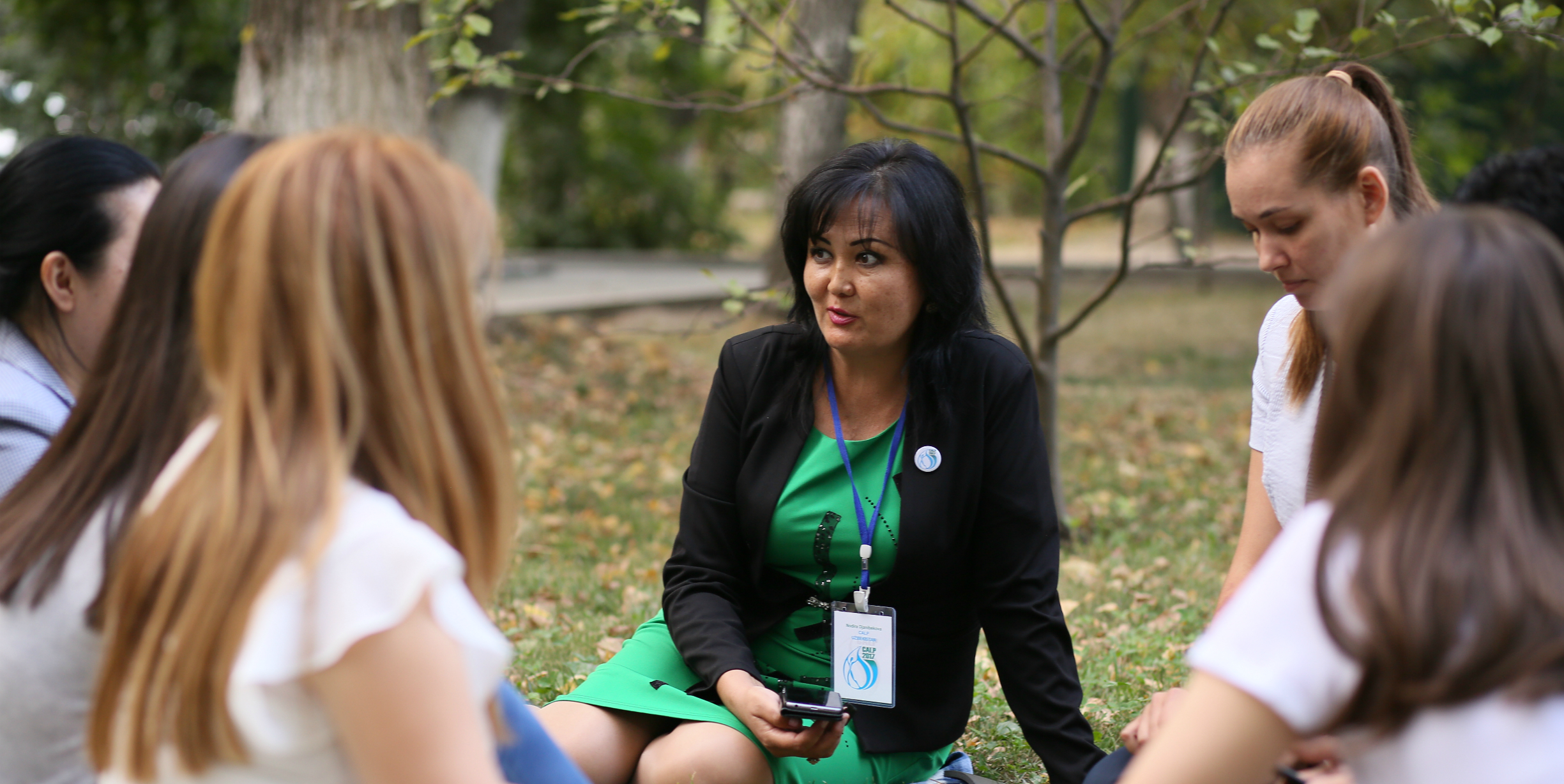
CAREC: Do you have an example to follow in your work?
Idrees: My professor, Dr. Aaron T. Wolf. I admire not only his works, but also the ability to listen. If you want to meet him, you should invite him by email one year in advance! Well, okay, at least six months.
But he will call you and say: "Do you want to see me? Come, come." And he will talk with you for hours if he is not busy. He will listen to you and give you the feeling that you are the best, although he is a world-famous scientist.
I try to learn from him.
Nodira: Jawaharlal Nehru from India comes to mind. As a leader lead neither one nor ten people, but the whole population, making them believe in themselves.
Aziza: Now I cannot name a specific person. Everyone I meet on my way inspires me. For example, I know Danara. She is a person who works with young people and constantly organizes something. Or I interview, and every time the story of a new person inspires me.
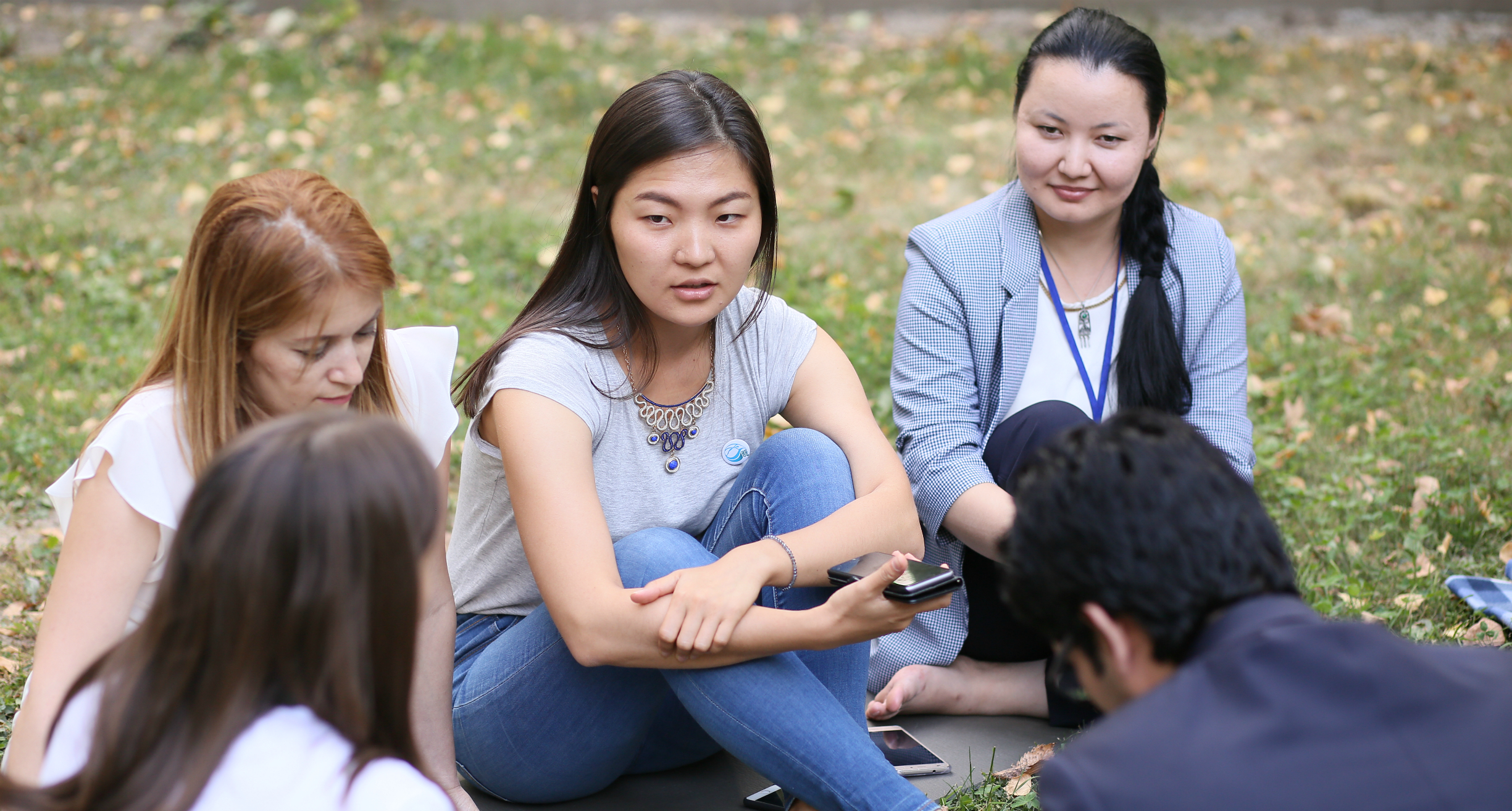
CAREC: And the last question. Name what you are proud of in your work. If you are embarrassed by such a wording, then name a result that seems to confirm: "Yes, I'm doing everything right."
Aziza: I'm proud to be able to leave work or comfort zone without fear of changing something in my life (Aziza is an editor-in-chief of Vizitka Osh magazine).
Danara: Me, too. I'm not afraid to be out of work tomorrow. I know that I am a sought-after specialist in my field, as a lawyer and manager. But the biggest achievement for me is a meeting with the President of Switzerland (Danara works in the Social-Entrepreneurship Corporation "Shymkent").
Nodira: I, probably, celebrate my speech in Moscow among eminent professors and doctors in the Russian Academy of Sciences. Or, for example, I am proud of my students. We have created a group of like-minded people who share knowledge related to environmental culture (Nodira works at Gulistan State University).
Nataliya: This is a difficult question for me. When I returned back to Turkmenistan, as a graduate anthropologist, I thought how to find a job and did not know where to apply my knowledge and skills. But I found an organization that not only gave me the opportunity to work, but also to grow (Nataliya works in IFAS and GIZ).
Madina: I'm proud of the place where I work and what we did and do as part of our project. Now we have built three water supply systems in rural areas in Kulyab. There has never been drinking water. We gave water to 6,300 people. This is a very big job (Madina works in UNDP, Energy and Environment Program).
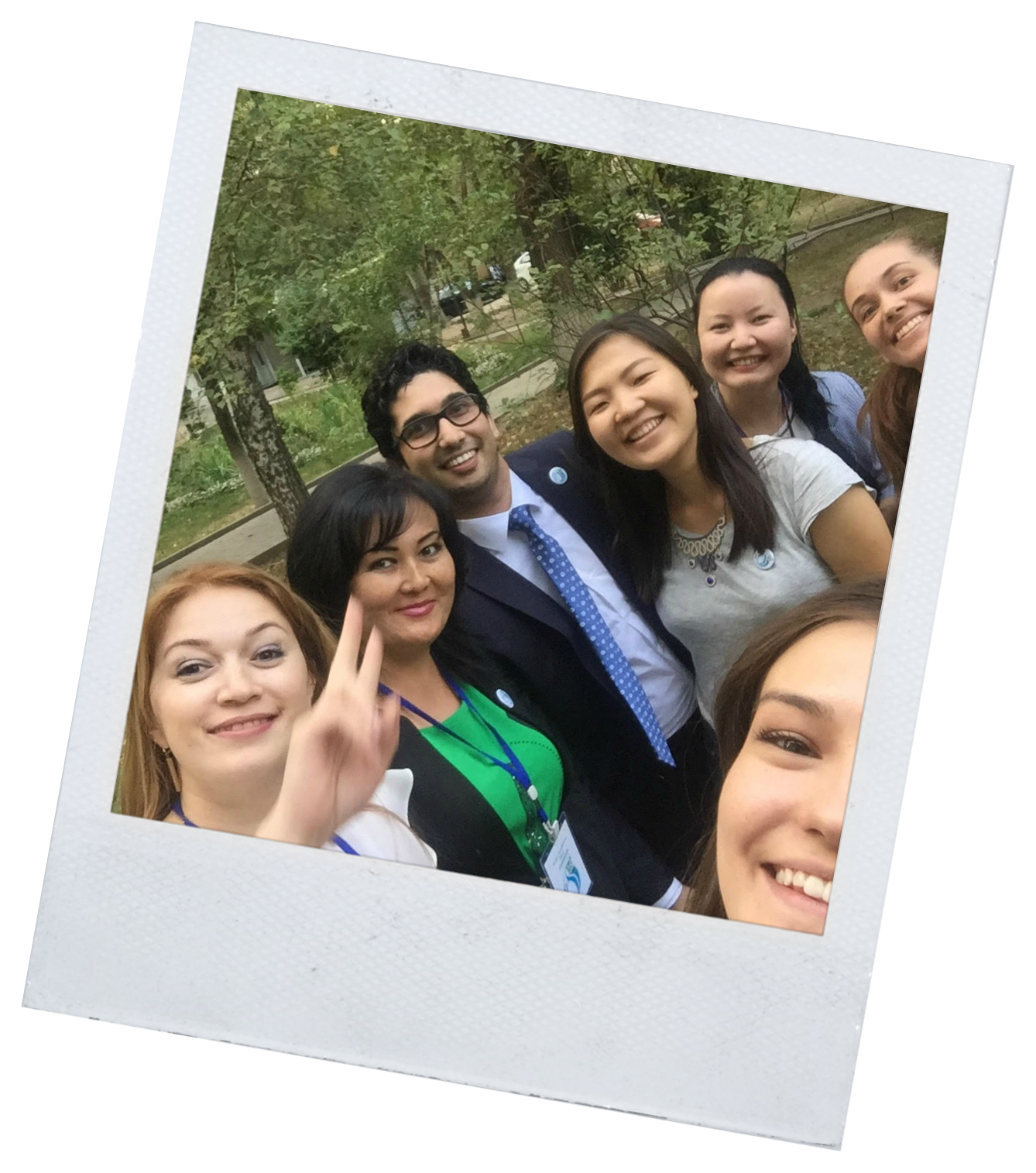 Name one word that accurately describes the leader
Name one word that accurately describes the leader
Madina: Goal-oriented
Aziza: Brave
Danara: Influential
Nodira: Responsible
Nataliya: Multi-oriented
Idrees: Achiever
